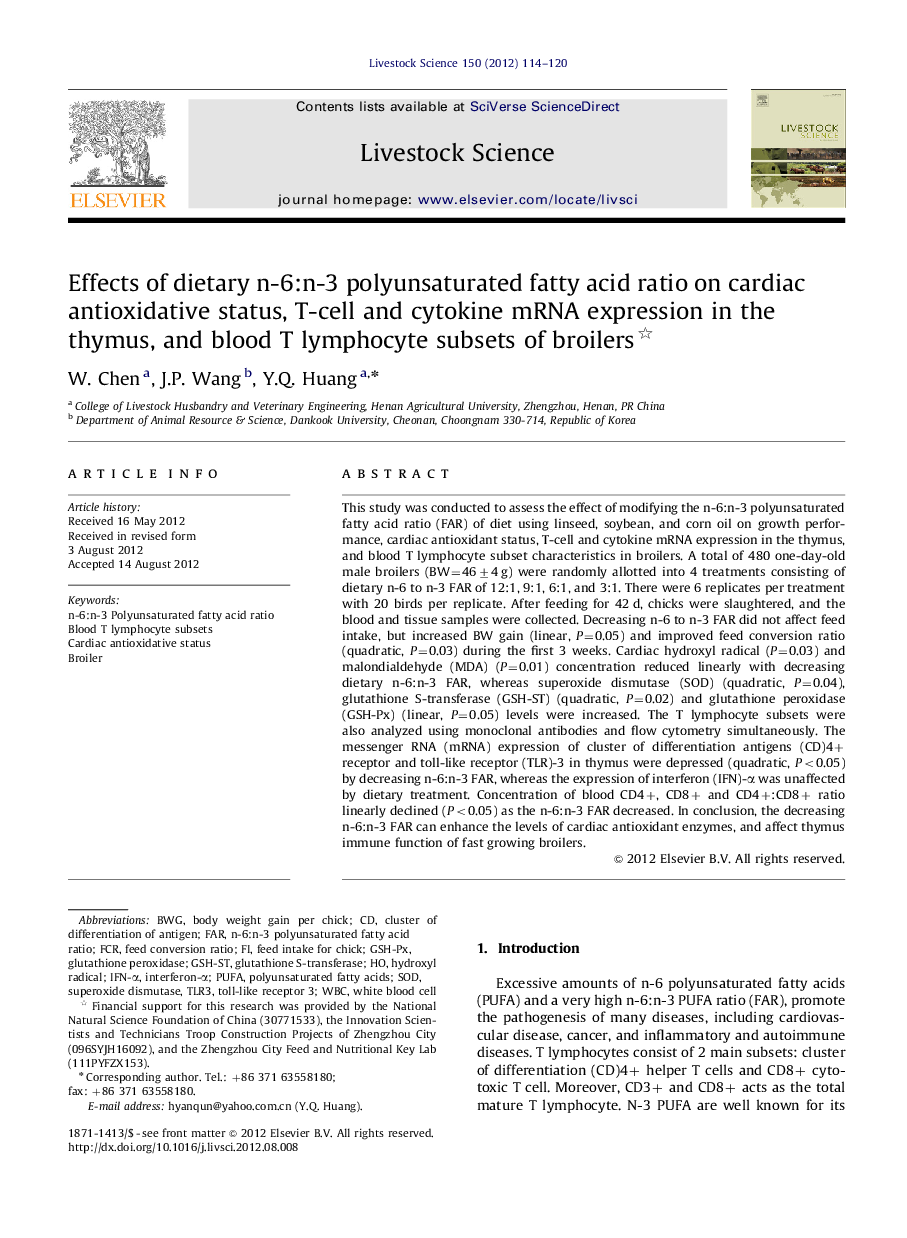| Article ID | Journal | Published Year | Pages | File Type |
|---|---|---|---|---|
| 5790481 | Livestock Science | 2012 | 7 Pages |
Abstract
This study was conducted to assess the effect of modifying the n-6:n-3 polyunsaturated fatty acid ratio (FAR) of diet using linseed, soybean, and corn oil on growth performance, cardiac antioxidant status, T-cell and cytokine mRNA expression in the thymus, and blood T lymphocyte subset characteristics in broilers. A total of 480 one-day-old male broilers (BW=46±4 g) were randomly allotted into 4 treatments consisting of dietary n-6 to n-3 FAR of 12:1, 9:1, 6:1, and 3:1. There were 6 replicates per treatment with 20 birds per replicate. After feeding for 42 d, chicks were slaughtered, and the blood and tissue samples were collected. Decreasing n-6 to n-3 FAR did not affect feed intake, but increased BW gain (linear, P=0.05) and improved feed conversion ratio (quadratic, P=0.03) during the first 3 weeks. Cardiac hydroxyl radical (P=0.03) and malondialdehyde (MDA) (P=0.01) concentration reduced linearly with decreasing dietary n-6:n-3 FAR, whereas superoxide dismutase (SOD) (quadratic, P=0.04), glutathione S-transferase (GSH-ST) (quadratic, P=0.02) and glutathione peroxidase (GSH-Px) (linear, P=0.05) levels were increased. The T lymphocyte subsets were also analyzed using monoclonal antibodies and flow cytometry simultaneously. The messenger RNA (mRNA) expression of cluster of differentiation antigens (CD)4+ receptor and toll-like receptor (TLR)-3 in thymus were depressed (quadratic, P<0.05) by decreasing n-6:n-3 FAR, whereas the expression of interferon (IFN)-α was unaffected by dietary treatment. Concentration of blood CD4+, CD8+ and CD4+:CD8+ ratio linearly declined (P<0.05) as the n-6:n-3 FAR decreased. In conclusion, the decreasing n-6:n-3 FAR can enhance the levels of cardiac antioxidant enzymes, and affect thymus immune function of fast growing broilers.
Keywords
Related Topics
Life Sciences
Agricultural and Biological Sciences
Animal Science and Zoology
Authors
W. Chen, J.P. Wang, Y.Q. Huang,
